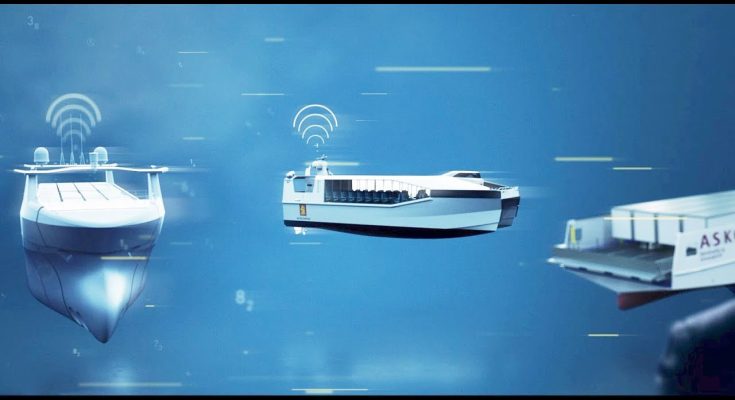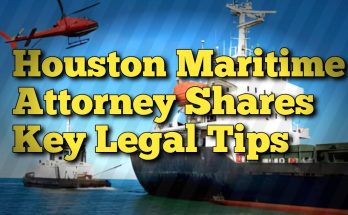Introduction
Navigating Legal Waters, When it comes to maritime law, having a knowledgeable attorney by your side is crucial, especially in a bustling port city like New Orleans. With its rich maritime history and a thriving shipping industry, the legal challenges surrounding maritime activities can be intricate and nuanced. Whether you’re dealing with personal injury claims, vessel documentation, or contractual disputes, understanding the role of a maritime lawyer is essential for protecting your rights and interests.
Understanding Maritime Law
Maritime law, also known as admiralty law, governs activities on navigable waters. This body of law covers a variety of areas, including shipping, navigation, and the rights of seafarers. In New Orleans, where the Mississippi River meets the Gulf of Mexico, the maritime industry plays a pivotal role in the local economy, necessitating a thorough understanding of the laws that regulate it.
Key Areas of Maritime Law
- Personal Injury Claims:
Injuries sustained on vessels are often subject to unique laws. The Jones Act, for instance, allows injured seamen to seek compensation for injuries caused by negligence. It’s vital to have an attorney well-versed in these laws to navigate claims effectively. - Maritime Contracts:
Contracts related to shipping and transportation can be complex. Issues may arise regarding charter agreements, cargo damages, and payment disputes. A maritime lawyer can assist in drafting, reviewing, and enforcing contracts to ensure compliance with federal and state regulations. - Vessel Documentation and Registration:
Proper documentation is essential for legal compliance. Maritime lawyers help with the registration of vessels, ensuring that all paperwork is in order to avoid potential fines or legal issues. - Environmental Regulations:
Compliance with environmental laws is crucial, especially in areas with sensitive ecosystems. A maritime lawyer can provide guidance on regulations such as the Clean Water Act and the Oil Pollution Act, helping clients understand their obligations and avoid costly penalties.
Why You Need a Maritime Lawyer in New Orleans
Local Expertise
New Orleans has a unique maritime landscape, influenced by its geographic location and industrial activities. A maritime lawyer in this area possesses in-depth knowledge of local laws and practices, which can be invaluable when handling cases specific to the region. Their familiarity with local courts and judges can also enhance the likelihood of favorable outcomes. Navigating Legal Waters.
Experience with Complex Cases
Maritime cases often involve multiple jurisdictions and complex legal issues. Experienced maritime lawyers in New Orleans are adept at managing these complexities, ensuring that all aspects of a case are thoroughly addressed. Whether it’s navigating federal regulations or state laws, their expertise can make a significant difference in the outcome of your case.
Representation for Various Maritime Workers
From commercial fishermen to cruise ship employees, a wide array of workers is affected by maritime law. A maritime lawyer can represent diverse clients, including:
- Seamen and Fishermen: Understanding their rights under the Jones Act and other applicable laws.
- Longshore Workers: Assisting with claims related to injuries sustained while loading and unloading cargo.
- Shipowners and Operators: Advising on liability issues and risk management. Navigating Legal Waters.
Choosing the Right Maritime Lawyer
When selecting a maritime lawyer in New Orleans, consider the following factors:
Specialization in Maritime Law
Ensure that the lawyer specializes in maritime law, with a proven track record of handling similar cases. This specialization indicates a deep understanding of the intricacies involved in maritime issues.
Reputation and Experience
Look for reviews and testimonials from previous clients. A lawyer with a solid reputation in the maritime community and extensive experience is more likely to provide effective representation.
Communication Skills
Effective communication is vital. Your lawyer should be able to explain complex legal concepts in a way that is easy to understand, keeping you informed throughout the legal process.
Accessibility and Support
Choose a lawyer who is readily accessible and offers support throughout your case. Feeling supported and informed can alleviate the stress associated with legal proceedings.
The Legal Process Involved in Maritime Cases
Initial Consultation
The journey begins with an initial consultation, where you discuss your case with the maritime lawyer. They will assess the details, outline potential legal strategies, and explain what to expect moving forward.
Investigation and Evidence Gathering
Once you hire a lawyer, they will conduct a thorough investigation to gather evidence, interview witnesses, and analyze relevant documents. This step is crucial for building a strong case.
Negotiation and Settlement
Many maritime cases are resolved through negotiation. Your lawyer will represent your interests, seeking a fair settlement that compensates you for your injuries or losses. If negotiations fail, they will prepare for litigation.
Litigation
If your case goes to court, your maritime lawyer will present your case, utilizing their knowledge and experience to advocate on your behalf. They will handle all legal proceedings, from filing necessary documents to presenting evidence and witnesses.
Conclusion
In the dynamic maritime environment of New Orleans, having a skilled maritime lawyer is essential for navigating legal challenges effectively. Whether you are a worker injured on the job or a business owner facing contractual disputes, a specialized attorney can provide the expertise needed to protect your rights. With a comprehensive understanding of maritime law and a commitment to client success, they play a vital role in ensuring justice is served.
For further information on enhancing your website’s traffic and visibility, please visit The Insider’s Views.
When it comes to maritime law, having a knowledgeable attorney by your side is crucial, especially in a bustling port city like New Orleans. With its rich maritime history and a thriving shipping industry, the legal challenges surrounding maritime activities can be intricate and nuanced. Whether you’re dealing with personal injury claims, vessel documentation, or contractual disputes, understanding the role of a maritime lawyer is essential for protecting your rights and interests.
Understanding Maritime Law
Maritime law, also known as admiralty law, governs activities on navigable waters. This body of law covers a variety of areas, including shipping, navigation, and the rights of seafarers. In New Orleans, where the Mississippi River meets the Gulf of Mexico, the maritime industry plays a pivotal role in the local economy, necessitating a thorough understanding of the laws that regulate it.
Key Areas of Maritime Law
- Personal Injury Claims:
Injuries sustained on vessels are often subject to unique laws. The Jones Act, for instance, allows injured seamen to seek compensation for injuries caused by negligence. It’s vital to have an attorney well-versed in these laws to navigate claims effectively. - Maritime Contracts:
Contracts related to shipping and transportation can be complex. Issues may arise regarding charter agreements, cargo damages, and payment disputes. A maritime lawyer can assist in drafting, reviewing, and enforcing contracts to ensure compliance with federal and state regulations. - Vessel Documentation and Registration:
Proper documentation is essential for legal compliance. Maritime lawyers help with the registration of vessels, ensuring that all paperwork is in order to avoid potential fines or legal issues. - Environmental Regulations:
Compliance with environmental laws is crucial, especially in areas with sensitive ecosystems. A maritime lawyer can provide guidance on regulations such as the Clean Water Act and the Oil Pollution Act, helping clients understand their obligations and avoid costly penalties.
Why You Need a Maritime Lawyer in New Orleans
Local Expertise
New Orleans has a unique maritime landscape, influenced by its geographic location and industrial activities. A maritime lawyer in this area possesses in-depth knowledge of local laws and practices, which can be invaluable when handling cases specific to the region. Their familiarity with local courts and judges can also enhance the likelihood of favorable outcomes.
Experience with Complex Cases
Maritime cases often involve multiple jurisdictions and complex legal issues. Experienced maritime lawyers in New Orleans are adept at managing these complexities, ensuring that all aspects of a case are thoroughly addressed. Whether it’s navigating federal regulations or state laws, their expertise can make a significant difference in the outcome of your case.
Representation for Various Maritime Workers
From commercial fishermen to cruise ship employees, a wide array of workers is affected by maritime law. A maritime lawyer can represent diverse clients, including:
- Seamen and Fishermen: Understanding their rights under the Jones Act and other applicable laws.
- Longshore Workers: Assisting with claims related to injuries sustained while loading and unloading cargo.
- Shipowners and Operators: Advising on liability issues and risk management.
Choosing the Right Maritime Lawyer
When selecting a maritime lawyer in New Orleans, consider the following factors:
Specialization in Maritime Law
Ensure that the lawyer specializes in maritime law, with a proven track record of handling similar cases. This specialization indicates a deep understanding of the intricacies involved in maritime issues.
Reputation and Experience
Look for reviews and testimonials from previous clients. A lawyer with a solid reputation in the maritime community and extensive experience is more likely to provide effective representation.
Communication Skills
Effective communication is vital. Your lawyer should be able to explain complex legal concepts in a way that is easy to understand, keeping you informed throughout the legal process.
Accessibility and Support
Choose a lawyer who is readily accessible and offers support throughout your case. Feeling supported and informed can alleviate the stress associated with legal proceedings.
The Legal Process Involved in Maritime Cases
Initial Consultation
The journey begins with an initial consultation, where you discuss your case with the maritime lawyer. They will assess the details, outline potential legal strategies, and explain what to expect moving forward.
Investigation and Evidence Gathering
Once you hire a lawyer, they will conduct a thorough investigation to gather evidence, interview witnesses, and analyze relevant documents. This step is crucial for building a strong case.
Negotiation and Settlement
Many maritime cases are resolved through negotiation. Your lawyer will represent your interests, seeking a fair settlement that compensates you for your injuries or losses. If negotiations fail, they will prepare for litigation.
Litigation
If your case goes to court, your maritime lawyer will present your case, utilizing their knowledge and experience to advocate on your behalf. They will handle all legal proceedings, from filing necessary documents to presenting evidence and witnesses.
Conclusion
In the dynamic maritime environment of New Orleans, having a skilled maritime lawyer is essential for navigating legal challenges effectively. Whether you are a worker injured on the job or a business owner facing contractual disputes, a specialized attorney can provide the expertise needed to protect your rights. With a comprehensive understanding of maritime law and a commitment to client success, they play a vital role in ensuring justice is served.



